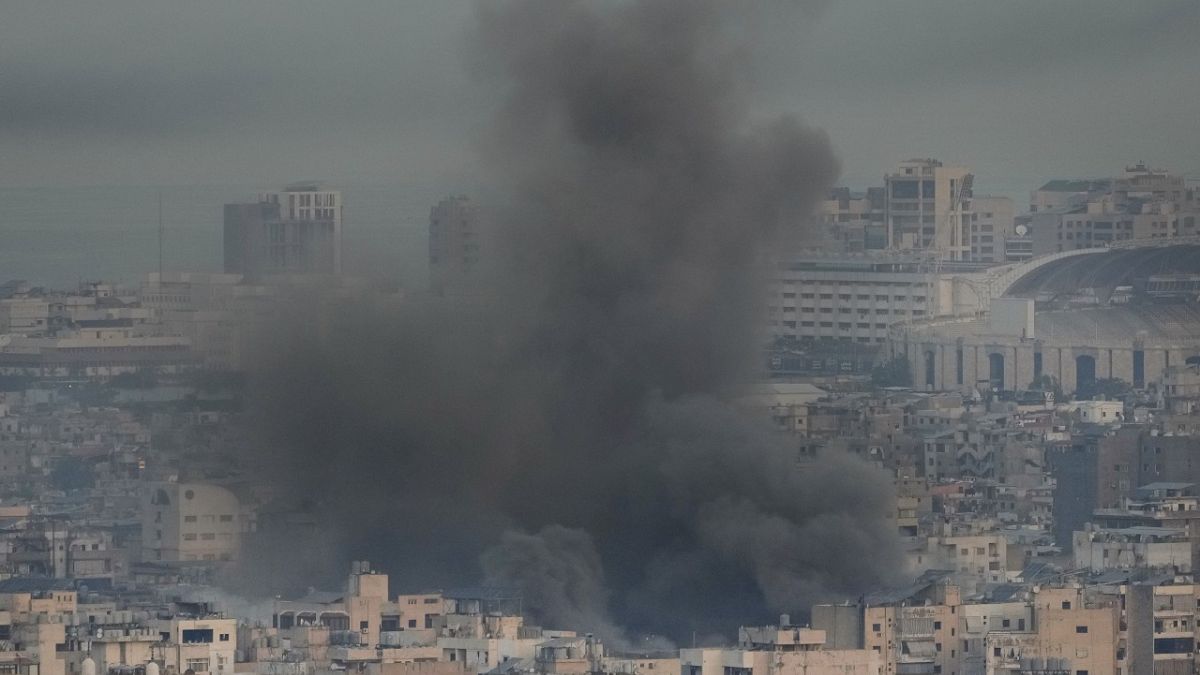Israeli airstrikes have caused devastation in various parts of Lebanon, resulting in the death of at least 27 people. The strikes targeted southern Lebanon and the capital city of Beirut, causing significant damage. In Nabatiyeh, in southern Lebanon, more than half a dozen strikes hit the city and surrounding areas, leading to 16 deaths and 52 wounded individuals. The Israeli military claimed they were targeting Hezbollah command centers and weapons facilities embedded in civilian areas. Lebanon’s caretaker prime minister accused Israel of intentionally targeting a municipal council meeting in Nabatiyeh.
The United Nations Interim Force in Lebanon (UNIFIL) reported that Israeli troops fired at their watchtower in southern Lebanon. This incident adds to the growing international criticism of Israel’s actions, particularly in targeting UNIFIL peacekeepers. The peacekeeping mission stated that a UNIFIL position near Kfar Kila observed an Israeli tank firing at their watchtower, destroying two cameras and causing damage to the tower. Previous incidents involved Israeli troops forcibly entering a UNIFIL position and obstructing logistical movements near Mays al-Jabal. UNIFIL urged all actors, including the Israeli Defense Forces, to ensure the safety and security of UN personnel and respect the inviolability of UN premises at all times.
In Gaza, the humanitarian crisis remains dire, with the UN accusing Israel of blocking the delivery of essential aid. The top UN humanitarian official highlighted the lack of food in northern Gaza, where an Israeli offensive is ongoing. The official noted that barely any food entered the area, and essential supplies for survival are running out. Less than one third of humanitarian missions coordinated with Israeli authorities in October were facilitated without major incidents or delays. The suffering in Gaza continues to worsen as necessary supplies are blocked, and fighting intensifies. The US ambassador to the UN emphasized the need for Israel to address the humanitarian crisis in Gaza, warning of potential consequences if action is not taken.
The US ambassador stressed the importance of addressing the humanitarian crisis in Gaza and ensuring that aid reaches those in need. The recent warning from the US to Israel regarding the delivery of aid underscored the urgency of the situation. Despite some progress in aid deliveries, the ambassador emphasized the need for Israel to follow through on its commitments to prevent a policy of starvation in northern Gaza. The ambassador highlighted the significance of actions on the ground in bringing real progress and urged Israel to uphold its commitment to providing essential supplies and humanitarian assistance to the people of Gaza. Monitoring of Israel’s actions in Gaza will continue to ensure compliance with international and US laws.
In the midst of escalating violence and destruction in Lebanon and Gaza, the international community must unite to address the pressing humanitarian needs of affected populations. The targeting of civilian areas and humanitarian missions only exacerbates an already dire situation. Israel’s actions in blocking aid delivery and targeting UNIFIL peacekeepers are a cause for concern and must be addressed promptly. The UN’s call for immediate action to alleviate the suffering in Gaza and Lebanon is a reminder of the need for a coordinated and efficient response to humanitarian crises in conflict-affected areas. By prioritizing the protection of civilians, facilitating aid delivery, and upholding humanitarian principles, stakeholders can work towards alleviating the suffering and restoring stability in the region. It is essential for all parties involved to respect international laws and obligations to ensure the safety and well-being of all individuals affected by the conflicts in Lebanon and Gaza.
The ongoing violence and humanitarian crises in Lebanon and Gaza highlight the urgent need for a coordinated international response to address the needs of affected populations. By ensuring the delivery of essential aid, protecting civilians, and upholding humanitarian principles, stakeholders can work towards alleviating suffering and restoring stability in the region. The international community must hold all actors accountable for their actions, particularly in targeting civilian areas and obstructing humanitarian missions. Israel’s actions, including airstrikes in Lebanon and Gaza, blocking aid delivery, and targeting UNIFIL peacekeepers, must be addressed promptly to prevent further escalation of the crises. Prioritizing the safety and well-being of civilians is fundamental in times of conflict, and concerted efforts are needed to ensure that all individuals receive the assistance and protection they require.











